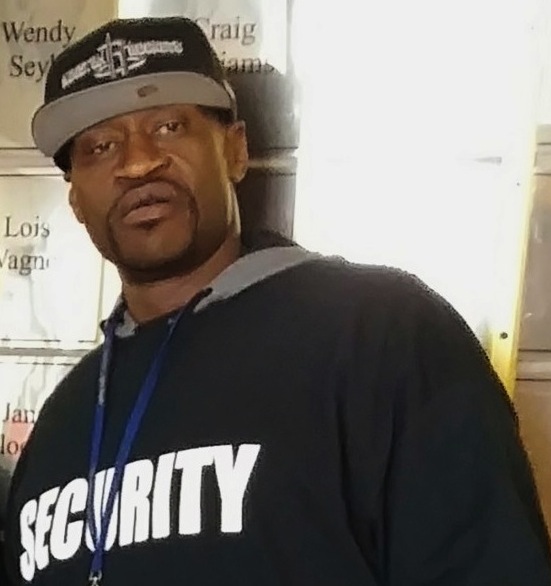THE HUTCHINSON REPORT
By Earl Ofari Hutchinson
Contributing Columnist
When word hit that a phony Valentine’s Day card was being circulated among Los Angeles police officers that mocked the slaying of George Floyd, a bevy of police and city officials expressed outrage.
All promised a thorough investigation and tough punishment for whoever was the perpetrator of the disgusting and hate-filled card. The indignation from on top is all well and good.
However, it begs several sticky questions. One, why did the perpetrator feel that it was OK to circulate such a racially charged, offensive card in the first place? Two, how many LAPD officers were offended by the card, or not? And three, if the officers were indeed offended why didn’t they, and not the brass, instantly react in outrage and blow the whistle on the offender or offenders?
The slaying of Floyd last May ignited mass marches, protests, demonstrations and civil disturbances. It prodded every political leader, including even President Donald Trump, to speak out on the slaying. The slaying ignited a deep soul search once again on the continued cheapness of Black lives and how cavalierly and wantonly some cops and continue to extinguish them.
Unfortunately, what the Floyd slaying didn’t do was force police departments to go full bore to purge the culture of silence from their departments. The fact that such a racially heinous, despicable card mocking a killing could be circulated within the ranks of the LAPD is stark proof of that.
LAPD officials, the L.A. Police Commission and even the L.A. Police Protective League have repeatedly denounced and promised to crack down on the blue code of silence. There are rules and regulations in place that mandate that officers who witness any abusive, and yes, racist acts, by other officers challenge them and report them.
But the more galling thing that we still see is that officers within these departments and more than a few administrators also know that their fellow officers blatantly break the law. Yet, few will step forward to blow the whistle on them.
Here’s how deep, prevalent, and terrifying the blue code of silence continues to be in police culture. The National Institute of Ethics, in a study commissioned by the International Association of Police Chiefs, surveyed hundreds of police officers in 21 states.
The study found that nearly 80% of the officers said that a code of silence exists, more than half said it didn’t bother them, almost half admitted that the code was strongest when excessive force was used, and half also admitted they had witnessed misconduct by another officer but kept their mouths shut about it.
Why? Because in many cases they were told to keep quiet by other officers and in even more cases by department higher-ups. And if they didn’t, they were scared stiff that they would be ostracized; the officer who committed the misconduct would be disciplined or fired; or worse, they’d be fired, or at the very least would be “blackballed,” or that their bosses would simply blow their complaint off.
A significant number of them said they wanted to speak out about the abusive acts of fellow officers but were pressured by “uninvolved officers” to keep quiet.
But there has never been any need for officers to quake at that prospect. Courts have sided with officers in the few times that they have broken ranks and called out other officers to higher-ups for misconduct from beatings to the shooting of suspects or civilians. In one case, an appeals court in California went further and reminded police officers and officials in a ruling on the issue that it’s the legal and professional duty of an officer to report misconduct by another officer. It’s a protected constitutional right and that any form of retaliation against the officer for speaking out is illegal.
The problem is that few police departments pound this point home to rank-and-file officers or for that matter to their superiors. Telling recruits at the academy, officers in orientation and training sessions, and in their performance evaluations that the department has zero tolerance toward police misconduct should be enough. An officer who witnesses misconduct is duty-bound to report it. If they don’t, they are just as guilty of law breaking as the cop that breaks the law.
LAPD officials reacted with anger and indignation at the hideous fake Valentine’s Day card mocking Floyd’s slaying. The brutal truth, though, is that its very existence speaks volumes that the racist blue code of silence is still alive and well at least among some within LAPD ranks.
The silence makes it possible for bad cops and bad administrators to get away and keep getting away with abusive acts. It’s the single biggest thing that gives minorities and increasingly much of the public a negative opinion about cops and reinforces the notion that all cops routinely lie, cheat and cover up abuses. The racist Valentine’s Day card certainly didn’t help matters for the LAPD.
Earl Ofari Hutchinson is an author and political analyst. His latest book is “What’s Right and Wrong with the Electoral College” (Amazon). He also is the host of the weekly Hutchinson Report on KPFK 90.7 FM Los Angeles and the Pacifica Network.












